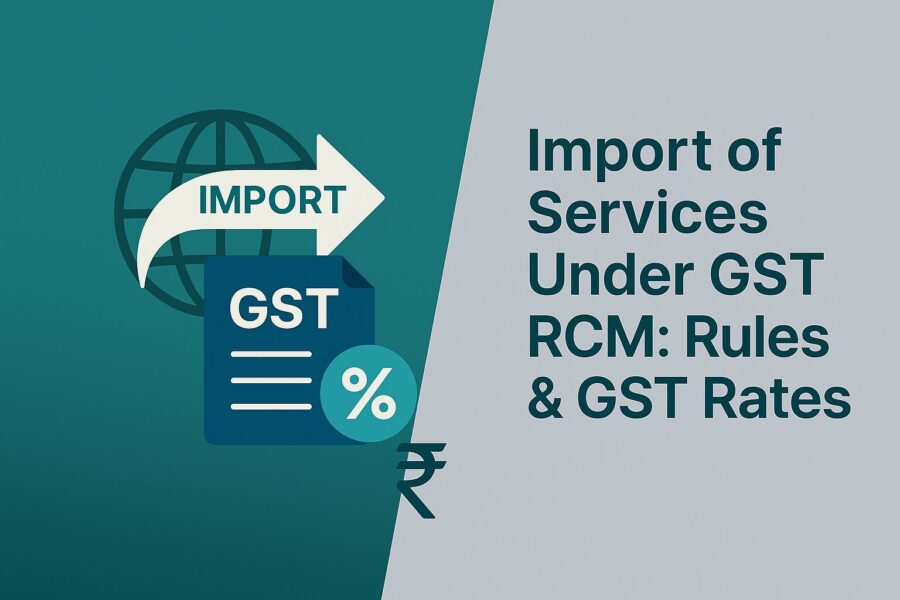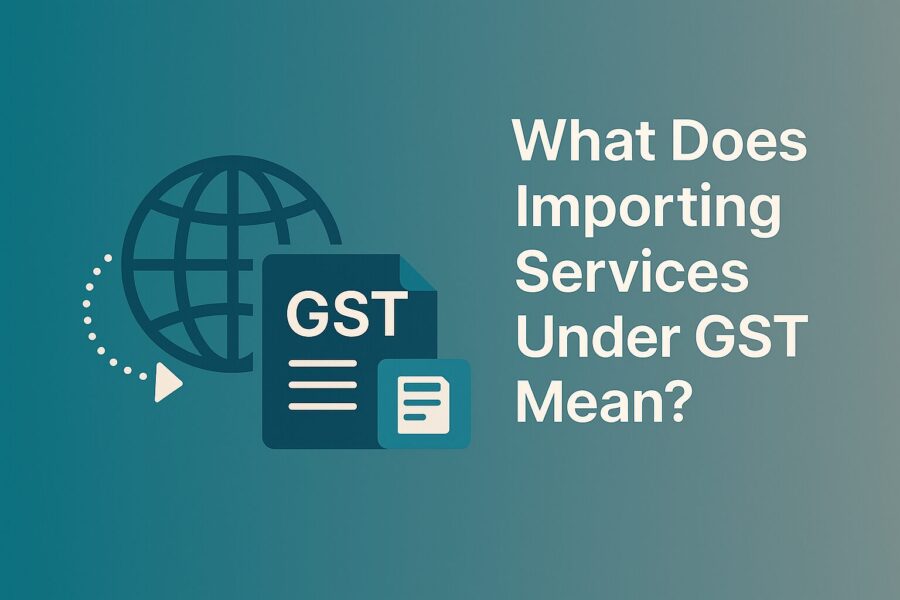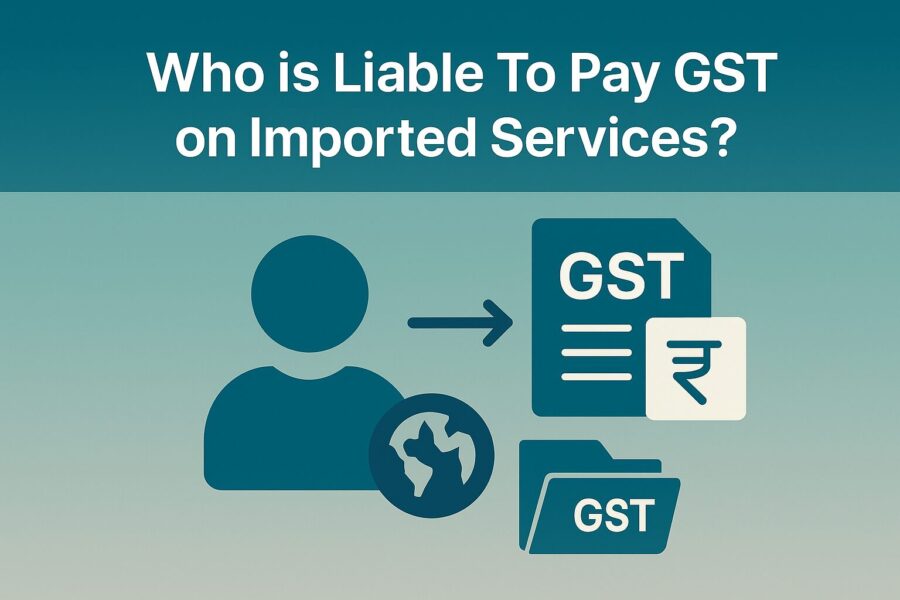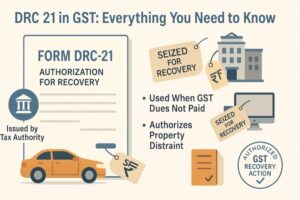Import of Services Under GST RCM: Rules & GST Rates
- 23 Oct 25
- 7 mins

Import of Services Under GST RCM: Rules & GST Rates
Key Takeaways
- Imported services under GST are taxed through the Reverse Charge Mechanism (RCM), making the service recipient liable to pay IGST.
- A service qualifies as an import if the supplier is outside India, the recipient is in India, and the place of supply is within India.
- Businesses availing foreign services must register for GST and file returns even if they don’t meet the normal turnover threshold.
- GST rates for imported services usually fall under 5%, 12%, 18%, or 28%, with 18% being the most common.
- Accurate HSN code classification ensures correct GST calculation, compliance, and parity between imported and domestic services.
There are many ways individuals in India procure foreign services and use them for business purposes. When you buy a service from a foreign service provider, GST applies to such imports under the RCM (Reverse Charge Mechanism) method.
Any business that is liable to pay GST under the RCM method must have a registration and file their return filings regardless of any other criteria that say otherwise.
Further in this article, you will learn more about the import of services under GST, along with GST rates and HSN codes for various imported services.
What Does Importing Services Under GST Mean?

When a foreign individual or business supplies their services to an individual in India, it classifies as an import service. These foreign transactions are subject to IGST, which recipients who receive the foreign services must pay.
In the case of an imported service, since the receiver of services pays GST instead of the supplier, we call it collection of GST under the RCM method. However, the rate of GST varies based on the specific nature of services. Most services fall under 5%, 12%, 18% and 28% tax brackets.
This approach of GST collection through the RCM method helps to ensure that import services are at par with domestic Indian services in terms of taxation.
Importance of GST Tax Collection on Imported Services
The implication of GST on imported services is very crucial not only for tax collection but for various other compliance-related reasons. Here are some reasons why the import of services under GST is important.
- Ensures Level-playing
Imposing GST on imported services helps to maintain equality among domestic and international services. This restricts any kind of undue advantage of foreign services over Indian domestic services.
- Constant Revenue for the Government
Businesses that utilise foreign services tend to use them for a long time. Constant collection of GST from these businesses acts as a constant source of revenue for the Government.
- Helps to Keep Track
Constant collection of taxes on imported goods provides the government with explicit knowledge of imports of various services in India. This knowledge helps to regulate international trade in services to maintain economic growth.
What are the Criteria for a Service to Qualify as an Import Under GST?
Under the GST regime, there is a list of criteria that helps to decide if the service supplied under GST is domestic or imported. Here is that list for you.
- Supplier’s Location: The provider must supply their services from outside Indian boundaries.
- Recipient’s Location: People or businesses who receive foreign or imported services must be within Indian boundaries.
- Delivery Location of Supply: Generally, the end location of supply is the recipient’s address. However, it is imperative for that supply’s location to be in India.
- Price Consideration: Just like any other transaction, imported supplies must have a set monetary transaction. This is important, although these transactions take place online.
- Purpose of Transaction: Under the GST regime, an imported service only takes place when the supply is made for commercial or business purposes.
Who is Liable To Pay GST on Imported Services?

Under the GST regime, the import of services under GST RCM makes the service receiver liable to pay GST instead of the supplier.
In an imported supply, a supply from foreign lands takes place, with its end destination being in India. Hence, it is easier to collect taxes within Indian boundaries.
Imported supplies attract applicable IGST taxes. The recipients must register for GST in such cases and comply with GST regulations, which include constant periodic filing of returns.
However, recipients can claim Input Tax Credit, provided that they adhere to all conditions in the GST law.
Current GST Rates and HSN Codes for Imported Services
There are various categories of GST rates for various types of services. The basis of distinction among these categories is their rates. There are mainly four categories of rates for imported services - 5%, 12%, 18% and 28%. The very common rate of GST applicable for most types of supplies is 18%.
Furthermore, the HSN codes or Harmonised System of Nomenclature is a system used to classify the nature of services for tax purposes. Various types of services, such as professional services, technical services and consulting services may have different GST rates based on their classification.
It is crucial for businesses importing services from abroad to accurately classify those services in order to determine the applicable GST rate. Proper classification ensures correct tax calculation and compliance with GST regulations.
The GST law mandates using HSN codes for classification, as it helps to provide a streamlined and systematic taxation process. The Indian Government collect taxes and charges IGST on imported services. This classification of GST rates on various services through HSN codes helps to clarify the taxation system and generates uniformity.
Conclusion
All businesses in India that are involved in the import of services under GST RCM must understand how the GST laws will affect their business. It is mandatory for businesses that buy imported services to have a GST registration. They must also file their GST returns while complying with all other GST regulations.
The RCM method makes the receivers liable to pay GST on their services. This not only acts as a constant source of revenue for the government but also helps to develop parity between domestic and international services.
💡If you want to streamline your payment and make GST payments via credit, debit card or UPI, consider using the PICE App. Explore the PICE App today and take your business to new heights.
 By
By 

















